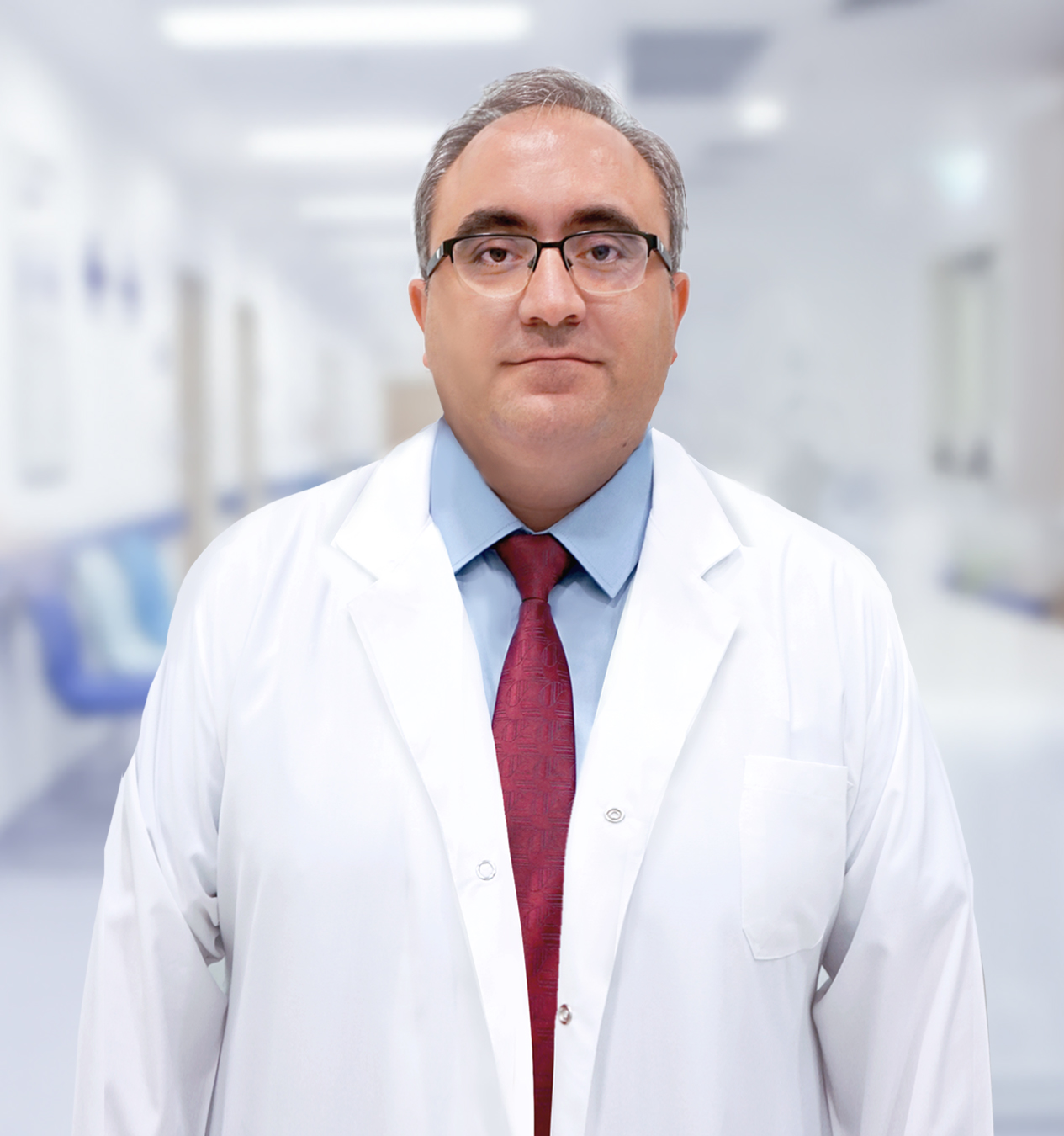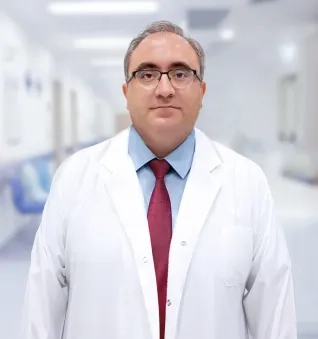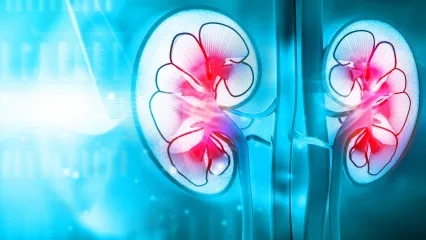Alo Yeditepe
Alo Yeditepe
Are Your Kidneys Really Healthy?
Nephrologist Prof.Dr. Abdullah Özkök, who said that kidney health affects all organs, especially the cardiovascular system, said that patients cannot see symptoms, especially due to the sneaky progression of chronic kidney diseases. He pointed out that blood creatinine values and urinalysis should be looked at together to see if the kidneys were healthy.
Urinalysis and Blood Creatinine Values Should Be Taken Together To See If The Kidneys Are Healthy!
Many factors, from excessive salt consumption to obesity, from a sedentary life to genetic factors, can pave the way for kidney diseases. Yeditepe University Hospitals Nephrologist Prof. Dr. Abdullah Özkök said that kidneys that do not work well may cause much more serious problems and added that it is very important to routinely monitor people with diabetes, hypertension, stone disease, and kidney disease in their family in terms of kidney health.
Beware of Those with A Family History of Kidney Disease!
According to Yeditepe University Kozyatağı Hospital Nephrologist Prof.Dr. Abdullah Özkök, the most common kidney disease in society is diabetic nephropathy due to diabetes. Prof. Dr. Abdullah Özkök pointed out that the increasing frequency of diabetes may cause an increase in cases of diabetic nephropathy in the near future due to many factors such as unhealthy diet, increased obesity, and sedentary life, and provided the following information about other problems related to kidney diseases:
"The second most common disease leading to kidney disease is hypertension. I can say that increased salt consumption here has very bad effects. According to the records of the Turkish Nephrology Association, the cause of kidney disease was diabetes in 36 percent of patients with end-stage renal failure, and hypertension in 26 percent. Other most common causes include glomerulonephritis, polycystic kidney disease, and kidney stones. Polycystic kidney disease is a genetic disease, and the genetic transmission rate of the disease is high. Therefore, when this disease is detected in one member of the family, other family members should also be examined. Likewise, some types of glomerulonephritis and stones can be passed genetically and familially. Therefore, it is beneficial to check the kidney health of people with renal disease in the family."
Kidneys That Do Not Work Well Affect the Whole System
Prof. Dr. Abdullah Özkök reminded us that the kidneys have important tasks such as the excretion of toxic substances in the body, fluid balance, and secretion of hormones that provide blood production. Prof. Dr. Abdullah Özkök said that "The kidneys that do not work well will bring along many problems such as accumulation of toxic substances in the body, poor contraction of the heart, accumulation of fluid around the heart, vascular occlusions, and calcification in the vascular wall, accumulation of fluid in the lungs due to excess fluid accumulation in the body and pulmonary edema, anemia as adequate hemoglobin cannot be produced."
Causes Irreversible Damage in Advanced Stages
Prof. Dr. Özkök stated that the most problematic aspect of kidney diseases is their very insidious progression and provided the following information on the subject: "In kidney diseases, mild complaints such as weakness at the beginning and frequent urination at night are seen. When more serious findings that affect other organs occur, the disease is usually very advanced and in some patients, unfortunately, irreversible."
"Blood Creatinine Value Alone Does Not Indicate Kidneys Are Healthy!"
Prof. Dr. Abdullah Özkök explained that kidney diseases usually start in the form of protein or blood leakage in the urine, causing impairment in filtration functions and an increase in blood creatinine values in the last stage, and added, "Therefore, no one can be called healthy by looking at the creatinine values in blood tests alone without urinalysis." Prof. Dr. Abdullah Özkök underlined for this reason that starting from childhood, it is very important to check everyone's urinalysis and blood creatinine values in terms of catching asymptomatic, non-symptomatic kidney diseases.
Prof. Özkök continued as follows: "Your blood creatinine value may be normal, but you may have very serious kidney disease. Therefore, simple complete urinalysis should not be overlooked, and it is absolutely necessary to look at the controls. It can be said that if the creatinine value in the blood, your complete urinalysis, and urinary system ultrasound are all normal, your kidney health is very likely to be good. These three examinations are very important for evaluating kidney health."
Diabetic Patients Must Have Their Pies Checked Every Year!
Prof. Dr. Abdullah Özkök, Nephrologist at Yeditepe University Kozyatağı Hospital, emphasized that people with diabetes, hypertension, stone disease, and kidney disease in their family should be routinely monitored in terms of kidney health, and said, "Creatinine value in the blood, complete urinalysis, and albumin leakage in urine should be checked at least once a year, even if there are no complaints of diabetes patients and kidney disease. Patients with renal involvement due to these diseases may need more frequent follow-up compared to their disease status."
Even If Blood Pressure Is Normal, Too Much Salt Can Disrupt the Kidneys
Prof. Dr. Abdullah Özkök, who pointed out that in order to protect our kidney health socially, it is necessary to fight diabetes and obesity first, said the following about the measures to be taken: "We should avoid drinks containing fructose and glucose syrup as much as possible. We need to reduce salt. Even if you do not add salt to your meals, if you consume fast food and ready-made, processed foods, you are consuming a very high amount of salt. Even if your blood pressure is normal, consuming too much salt may be detrimental to kidney health."
About
Faculty and Year of Graduation:
İstanbul University Cerrahpaşa Faculty of Medicine (English), 2005
”
See Also
- What is Hypoglycemia?
- Common Misconceptions About Kidney Transplantation
- 10 Questions About Kidney Transplantation
- Misconceptions About Hypertension
- Chronic Kidney Disease and Treatment Methods
- What is Hypertension?
- AV FISTULA Should Be Done At The Right Time For Hemodialysis Patients
- He Held On To Life with His Brother's Kidney
- He Lost 20 Kilograms in 40 Days for His Wife
- One Out of Every Seven People Has Kidney Disease
- Being Thirsty in the Heat Tires the Kidneys!
- Tissue Harmony Is Also Important for Success in Kidney Transplant
Alo Yeditepe







